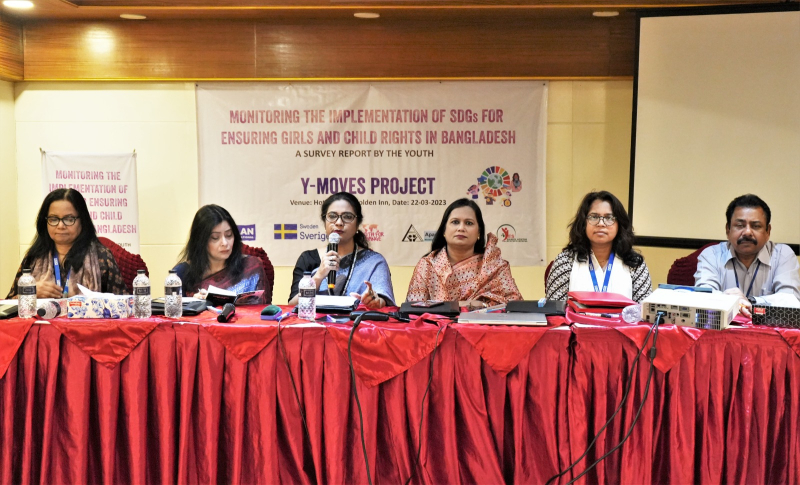- India beats Pakistan by 61 runs as World Cup scenario heats up |
- Jatiya Party routed in its fortress, Rangpur |
- Climate change cuts hilsa catch, raising long-term risks |
- Jamaat Ameer calls meeting with Tarique 'an important moment |
Early pregnancy prevalent among lower income groups: Study

Pregnancy before the age of 18 is prevalent among the lower per capita household income groups, said a survey report published Wednesday.
"Monitoring the Implementation of SDGs for Ensuring Girls and Child Rights in Bangladesh" was shared at an event organised by Plan International Bangladesh, Aparajeyo Bangladesh, Yes Bangladesh and Youth for Change at a hotel in Dhaka.
The data collection was carried out in June 2021 and in January 2022. A total of 3,175 households were randomly chosen and interviewed, especially women of reproductive age (15-49 years) from 64 districts.
The prevalence of becoming pregnant before the age of 18 is the highest (46.3 percent) among the lowest per capita household income groups (Tk2,500 per month), said the report.
Among the participants, 35.8 percent of the women first became pregnant before the age of 18 years. The highest was observed in Rangpur division (48.9 percent).
Shamim Ahmed, executive director of Yes Bangladesh, said most women aged 14-49 years know family planning methods (93.9 percent) and 78.4 percent use such methods.
Decisions regarding the use of family planning (FP) methods are taken jointly by males and females in 69.3 percent of households. They mostly receive family planning information from television (53.7 percent), community workers (33.2 percent) and social media (29.5 percent).
About 18.0 percent of surveyed women faced physical violence over the last 12 months. About 21.9 percent (highest) of the women reported physical violence with less than Tk2,500 per capita monthly income and about 9.5 percent (lowest) of the women reported physical violence with more than Tk10,000 per capita monthly income.
Among the surveyed women 14.7 percent reported that they faced obstruction regarding studies or employment by male family members. The highest (20.1 percent) was found in Mymensingh division.
The survey results reveal that about 46.2 percent of the households have children who faced physical punishment and/or psychological aggression at home and outside (e.g. educational institutions, public places, and transport), reports UNB.

